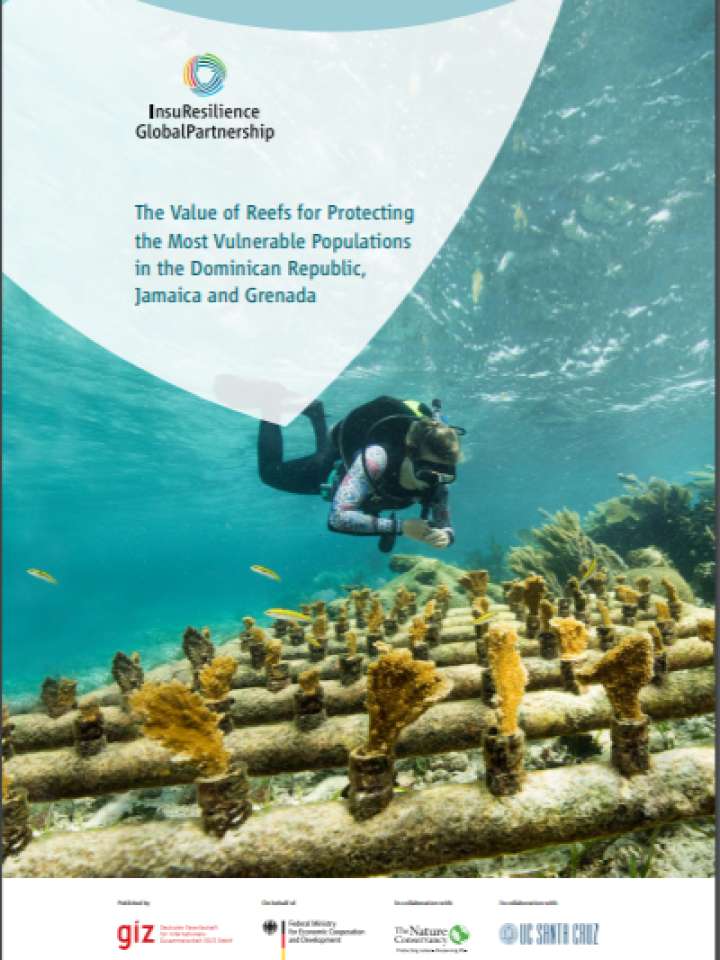The value of reefs for protecting the most vulnerable populations in the Dominican Republic, Jamaica and Grenada
This study assesses the flood protection benefits of reefs for protecting the most vulnerable people in the Dominican Republic, Jamaica, and Grenada. It aims to support work on nature-based defenses and insurance by testing approaches for assessing connections between the benefits of nature-based defenses and socially vulnerable populations. The study used hydrodynamic and socio-economic models to compare flood risk and reef benefits for scenarios with and without reefs for four storm return periods, including the 1 in 50-year storm. The without reefs scenarios assume only a decrease of 1 meter in the height and roughness of coral reefs.
This work shows that, despite variations in the (sub)national data, social benefits provided by reefs can be quantified for flood risk reduction. This quantification helps bolster the case for nature-based solutions and their role in climate adaptation and risk management as more than a “no-regret measure”. Restoring and managing coral reefs quantifiably contributes to disaster risk reduction and livelihoods improvement and should thus be included in national adaptation and disaster risk management plans, particularly in the tropical Small Island Developing States where nature-based solutions can be a critical element of coastal protection.
Explore further
